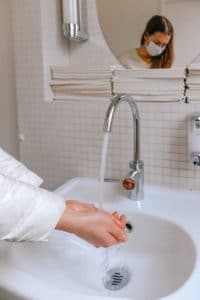
As you age, you probably need to make a few smart adjustments to your home to ensure your continued safety and mobility. Handrails and grab bars are examples of such improvements that make everyday life more accessible. If you’ve been wondering about the best places to install handrails and grab bars in your home, keep reading for practical advice and tips.
Why Handrails and Grab Bars Are Important for Seniors
Stability and balance can decrease with age, making slips and falls a real concern for seniors. That’s why handrails are important for elderly safety—they provide support exactly where it’s most needed. They help reduce the risk of injury and give you the confidence to move around your home more freely. Furthermore, handrails can greatly improve mobility for anyone with arthritis or general joint pain. These simple installations create a safer, worry-free home environment while empowering you to stay independent.
Best Places To Install Handrails
Now that you know why you should install handrails in your home, read on to learn the best places to do so.
Staircases
Staircases are one of the most essential areas for handrails to prevent dangerous falls. Be sure to have handrails installed on both sides of the stairs for maximum security.
Bathrooms
Bathrooms contain many slippery surfaces, especially around the bathtub and shower. Install grab bars in these areas and next to the toilet.
Hallways
Long hallways should feature handrails for additional support. They help lessen fatigue and give you something to steady yourself if you feel unbalanced.
Entryways and Ramps
Doors, stairs, and ramps at your home’s entrances are some of the trickiest areas to navigate, especially if it is rainy or icy outside. Handrails help you enter and exit your home safely in all types of weather.
Installation Tips To Keep in Mind
A poorly installed handrail or grab bar won’t do you much good. As you or a loved one sets these devices up, remember a few tips. First and foremost, buy quality handrails from the start. Cheap ones might save money in the short term, but they offer less security and will probably need to be replaced down the line.
Secondly, you should know the measuring basics for successful handrail installation—uneven or unlevel railings are harder to use and less practical. Also, learn how to tell when the railing or bar is securely attached to the wall. The last thing you want is for the assistive device to tear away from the wall while you’re using it. By following these tips, you’ll make your home a safer, more accessible place to age in.
